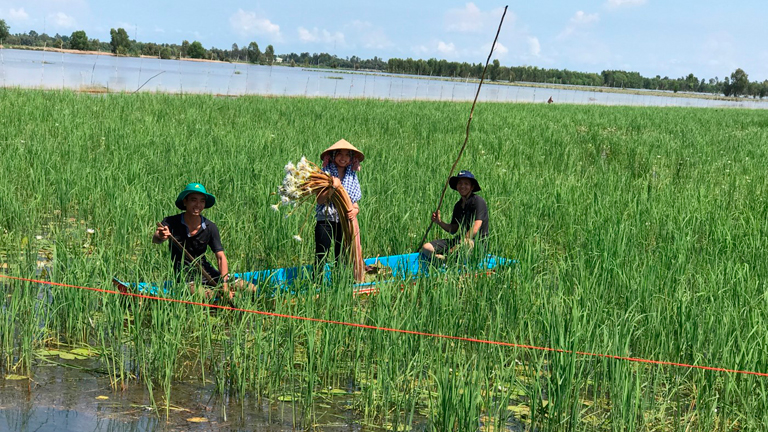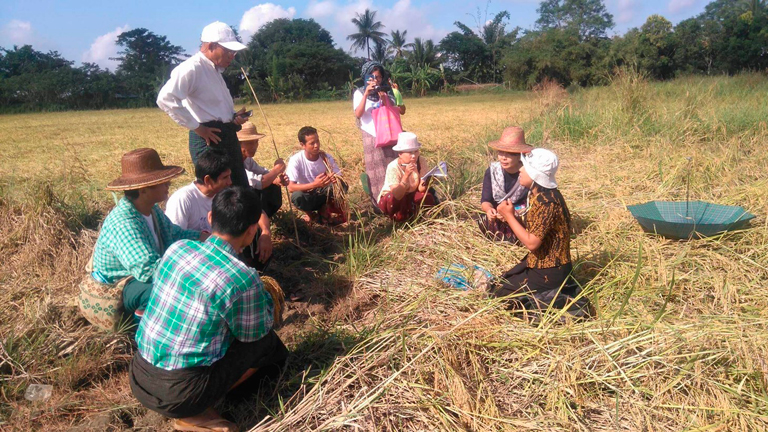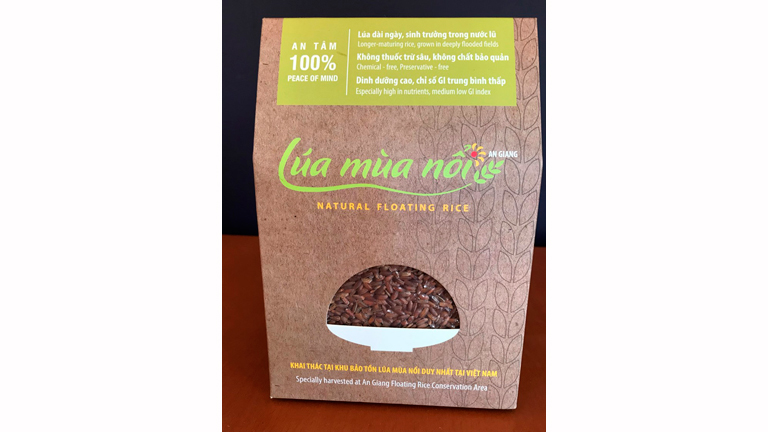Corporate social responsibility in practice: the Mitsui & Co. Environment Fund
Over the last decade, corporate social responsibility has become an increasing priority of successful business operations. Societies are now looking for companies to play a strong role in the communities they operate in, above and beyond a direct economic impact. From conserving traditional floating rice production in Vietnam to cultivating 74 forests across Japan, the breadth of Mitsui's social contribution programs sheds new light on corporate social responsibility.
At Mitsui we take seriously our role in supporting communities around the world. In fact, our motto is 'Mitsui is people'. We believe that as a global company it is our commitment to develop people and improve our local communities.
Mitsui & Co. has been investing in Australia since the early 1960s, forming some of Australia's first international consortiums to develop, market, and export Australian coal and iron ore to Japan. Since then we have stuck with Australia, steadily expanding and diversifying our business, while broadening our market reach into some of Asia's fastest growing economies. Across the globe we operate in 66 countries and have 137 offices, with more than 42,000 employees on a consolidated basis.
Mitsui & Co. Environment Fund
Among our own social contribution initiatives, the Mitsui & Co. Environment Fund supports activities and research across the world that contributes to solving global environmental problems. The fund supports programs that contribute to a sustainable society where the economy and environment coexist in harmony.
Since its launch in 2005, the Mitsui & Co. Environment Fund has provided 554 grants to recipients across the world. Chosen by Mitsui's head office in Tokyo, grants are for practical activities or research that contributes to the sustainable development of society and addresses global environmental problems. Recipients of grants must focus on one of the following fields: global environment, resource circulation, ecosystems and the symbiotic society, or the relationship between people and society.
Research in Focus
One Australian research grant that is currently supported by the Mitsui & Co. Environment Fund is a study into the role of traditional floating rice systems. Headed by two researchers at the Australian National University, the study spans three countries and is assessing the benefits and costs of conserving floating rice in Vietnam and extending those lessons to Cambodia and Myanmar.
In conjunction with the Royal Agricultural University (Cambodia), Yangon University and Research Association for Development, Cooperative University (Myanmar) and An Giang University (Vietnam), researchers at the Australian National University (ANU) are arguing for the conservation of traditional once-per-year crops of floating rice.
With governments across South-East Asia looking to intensify rice production and exports, this study shines a light on the important role traditional rice cultivation can play in supporting sustainable environments and food practices, as well as creating new industries for local farmers and communities.
"There are so many benefits for people and the environment" said Jamie Pittock, Project Leader and Associate Professor at ANU's Fenner School of Environment and Society.
"When the wet-season floods inundate the plains, the floating rice plants grow up fast, reaching up to four metres in the water.
"These plants provide new habitats for aquatic life. The flood waters bring nutrients. And this water is cleansed as it flows through the rice fields.
"As the floods recede, rice is harvested, and the residual rice straw then supports vegetable production" he said.
Additionally, the study hopes to highlight the many health attributes found in floating rice. The rice is not only chemical and preservative free, but is high in nutrients, protein, vitamin E and antioxidants.
In a world increasingly focused on healthy eating and wellness, the next stage of this research will look to identify domestic and international markets where floating rice can be marketed and sold as a healthier choice.
At Mitsui we look forward to continuing to support global communities through research and activity grants.


